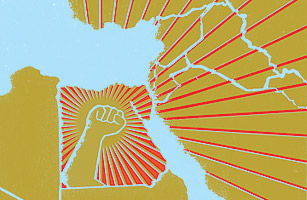
The Japanese tsunami swept the Libyan civil war out of the news, just as
the violence in Libya swept the far more consequential Egyptian
revolution out of the news before it. That’s how we roll in the
mainstream media. There is an incessant tide of undifferentiated
cataclysms; we rush to the sound of the guns and the natural disasters,
especially if there are pictures. But all bang-bang is not equal. There
are times, as in the case of Libya, when gunfire obscures more important
news. Before the historic Japanese catastrophe changed the cable-news
conversation, Libya was careering toward an American overreaction.
The peripheral importance of Libya was bloated by several factors—the passions in the streets seemed every bit as vital on television as
those in Egypt; Muammar Gaddafi, in full flagrance, demanded the sort of
unwarranted attention that a fender bender on the other side of the
highway does—but the contending forces were rival tribes, about
which we knew little. Barack Obama foolishly raised the stakes by saying
the dictator had to go, which in turn led to daily media pressure: Why
is he still there? What are you doing about it? Won’t it be embarrassing
if he won’t go? What credibility will the American President have then?
And the media spotlight was quickly filled by the President’s opponents,
who see every moment of hesitant policymaking as a sign of weakness
rather than prudence.